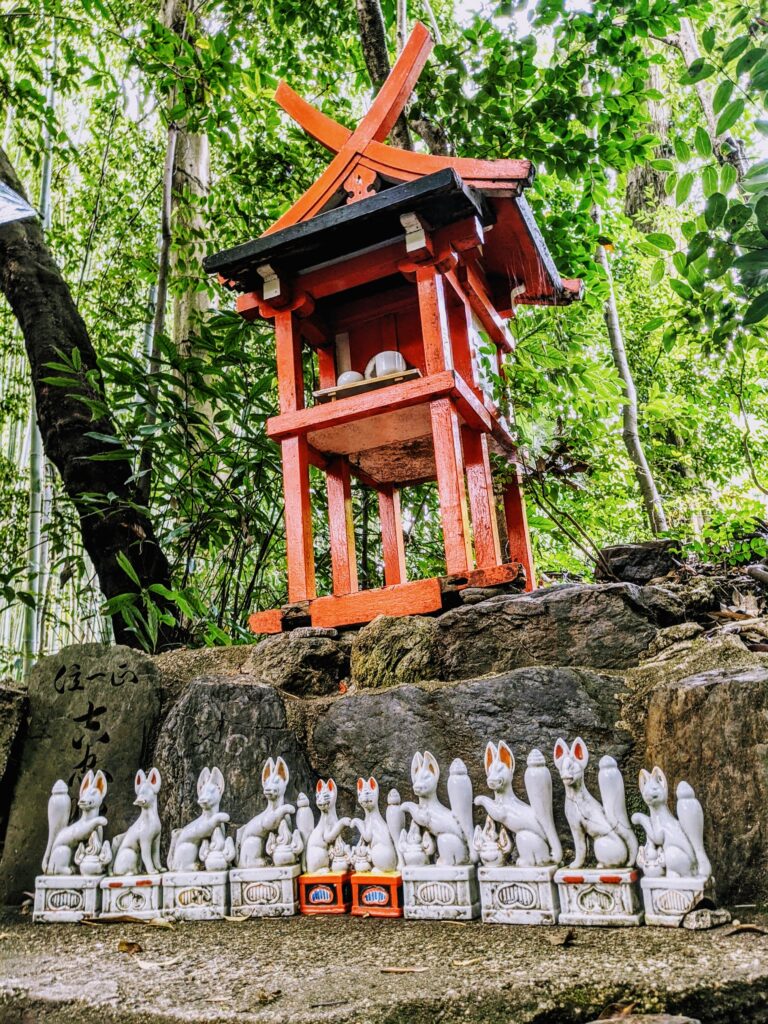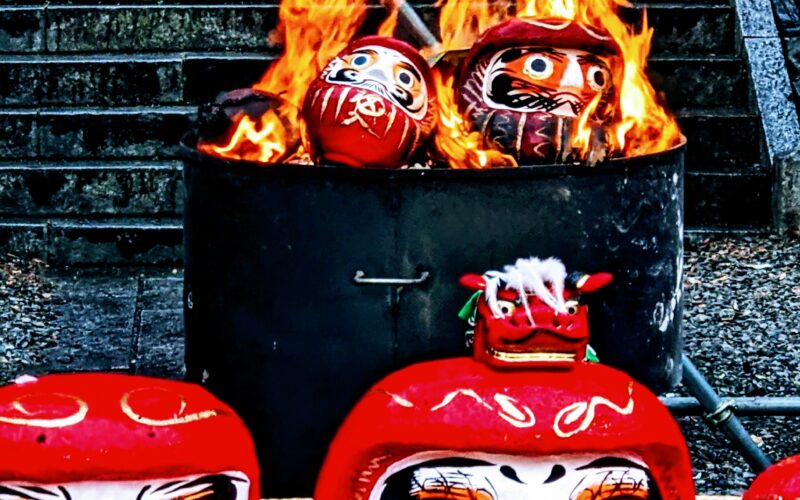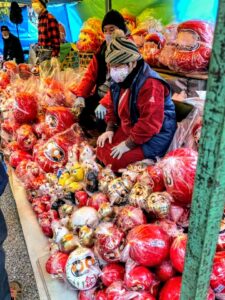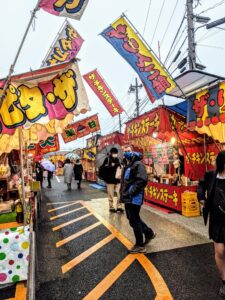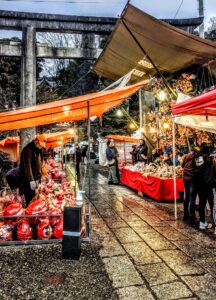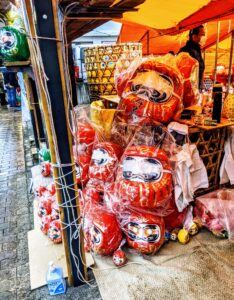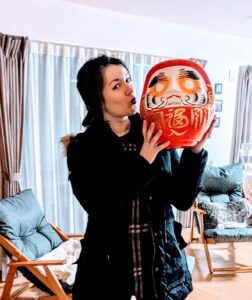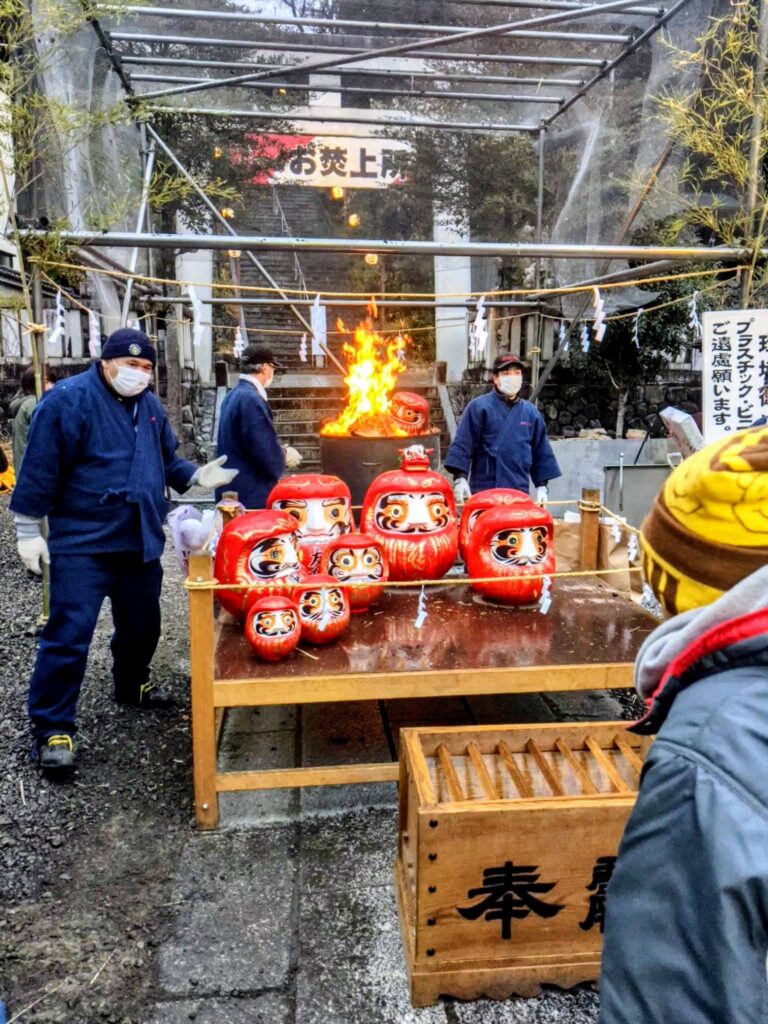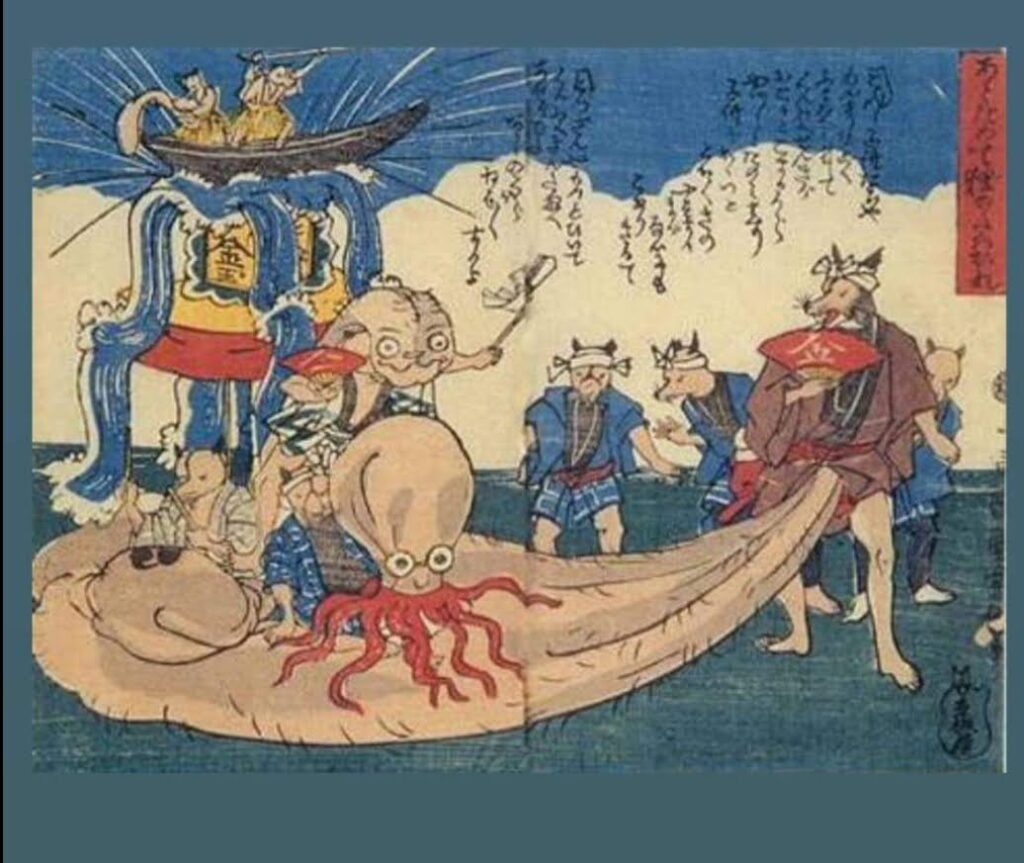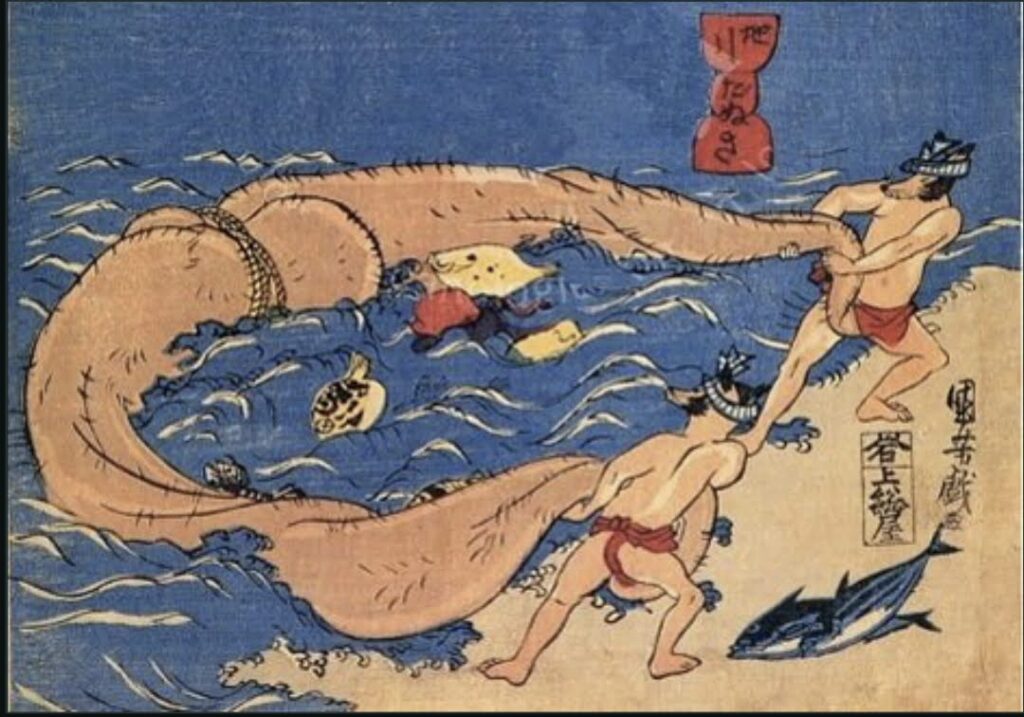This is the wrong link if you’re looking for love hotels :D.
I love picking up spiritual trinkets along our travels. The Evil Eye from Jordan sits above our coffee maker and Ganesha from India hangs on my dressing room door. Japan turns out to be a treasure trove for items that bring karma, luck, blessings, whatever you’d like to call it. Below are my favorite local good luck charms:
Daruma Dolls:
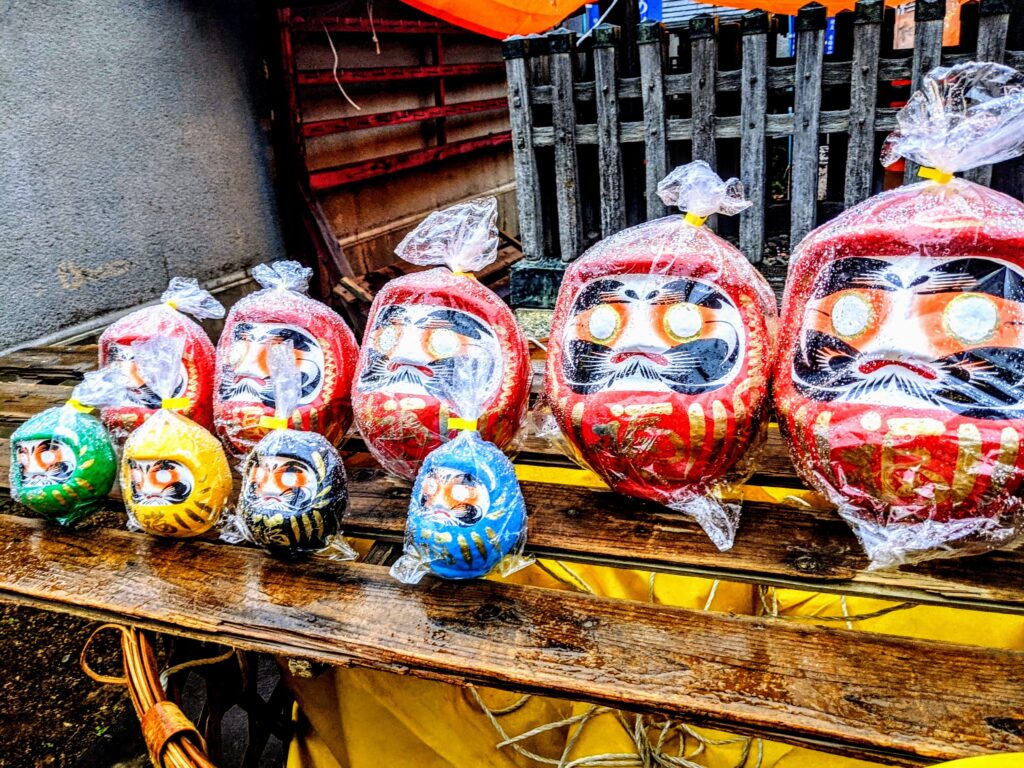
Daruma dolls are hand-painted paper mache dolls modeled after the monk that first brought Zen Buddhism to Japan. They represent luck and prosperity, especially for the New Year. There are two ways of thinking about a Daruma doll. 1 – you can buy a Daruma doll and place it in your home where it will naturally bring you good luck to achieve your goals. 2 – you can buy a Daruma doll and place it in your home where it will stare unblinkingly at you day in and day out to witness you fail at your resolutions, forcing you to create your own luck and stick with your goals. I was raised Catholic so the second one works best for me.
The story behind the Daruma doll is this. There was once a monk who meditated so deeply that he went into a trance for 9 years, causing his legs and arms to atrophy and fall off. Hence the dolls’ smooth round shape. The monk fell asleep at one point and, furious at his lapse, cut his own eyelids off to prevent it happening again. Hence the dolls’ lack of eyes. The dolls are also weighted so that they can’t be easily knocked over (like a weeble wobble). This represents the steadfastness of your commitment despite obstacles. As the Japanese say, “fall 7 times; get up 8!”
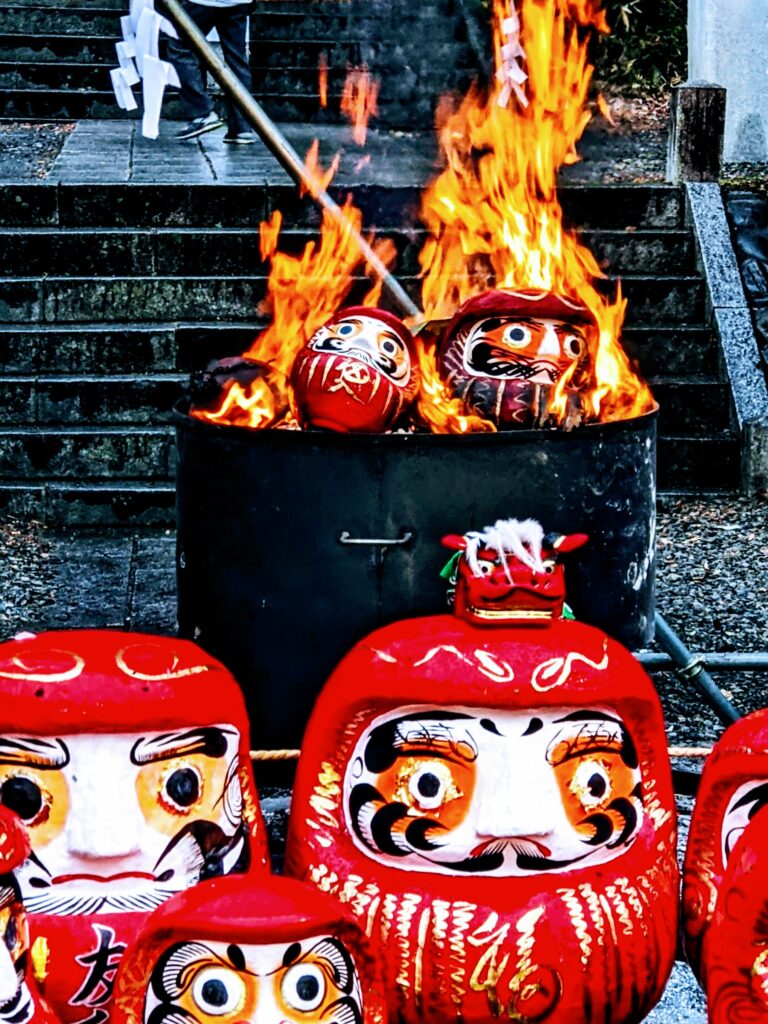
People usually buy a Daruma doll around the New Year and it is custom to burn last year’s doll at the same shrine it was bought from (although you can also find them at grocery stores and on Amazon, and it doesn’t necessarily mean bad luck if you don’t burn yours).
The Darumas come with blank eyes. Once you have a goal or aspiration in mind, color the left eye in. When your goal is achieved, color the right one in, giving the Daruma full sight. You’ll notice that the dolls in the New Year fires all have both eyes colored in; they must have been lucky dolls! Even political candidates in Japan are known for painting their Daruma’s right eye when they take office.
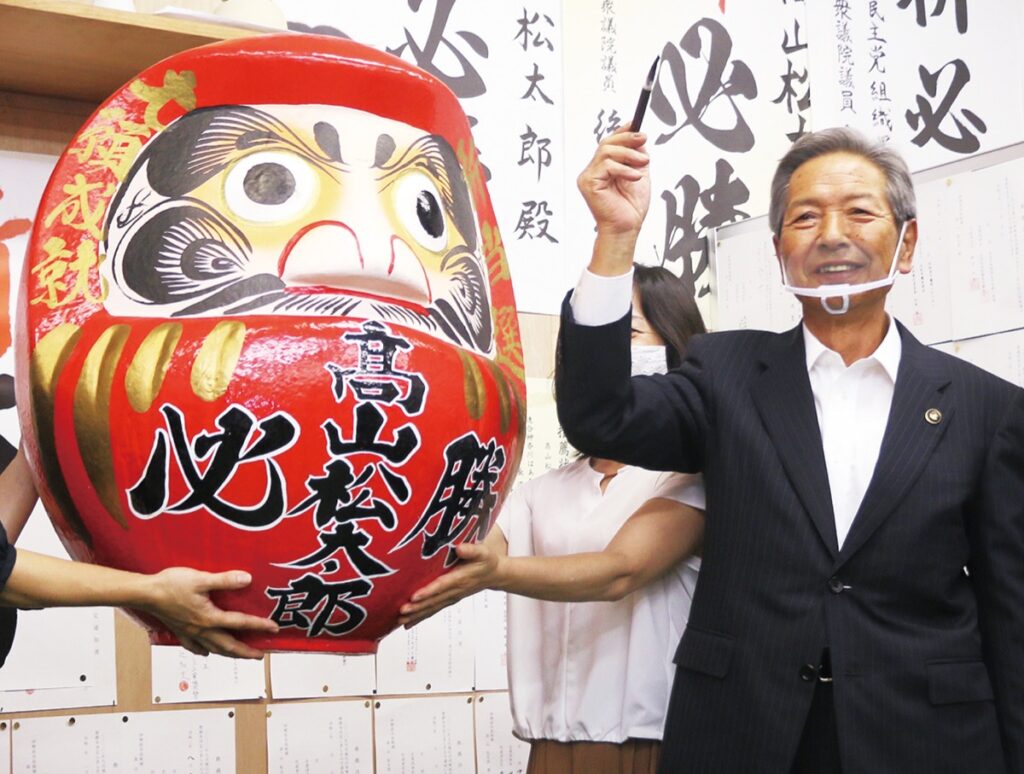
Your Daruma should be placed in an area where you see it (and it sees you) regularly. I have two; a small one for my fitness goals, and a big one that I call Mega Daruma for when we pay off our property. I enjoyed buying him because the woman at the Daruma stand saw me carefully considering and thought I wanted a better price, so she offered a teeny tiny doll. I pointed at Mega Daruma and told her, “Big Wish; Big Daruma.” She laughed and wished me an extremely lucky new year. I left with Mega Daruma for $35.
This Daruma festival was Fussa’s local festival on Jan 12 2021. There was a large one nearby that we missed on the 3rd and I hope to see another one in Hino is coming up on the 28th (I think? It was spelled “Damura” online…not sure if it’s just a typo or a completely different festival. Translating the local websites is hit and miss.) This festival was small as the main ceremony was canceled due to COVID and a cold rain settled in during the afternoon, but I was still awed by the bright stalls, endless rows of Daruma dolls, and fun atmosphere while festival goers bought piping hot Takoyaki and chocolate covered bananas till sundown. I’ve stuck with my workout plans far better this year than any other year, especially when I see Little Daruma staring at me each morning, so I’d say the dolls work!
Omamori Charms
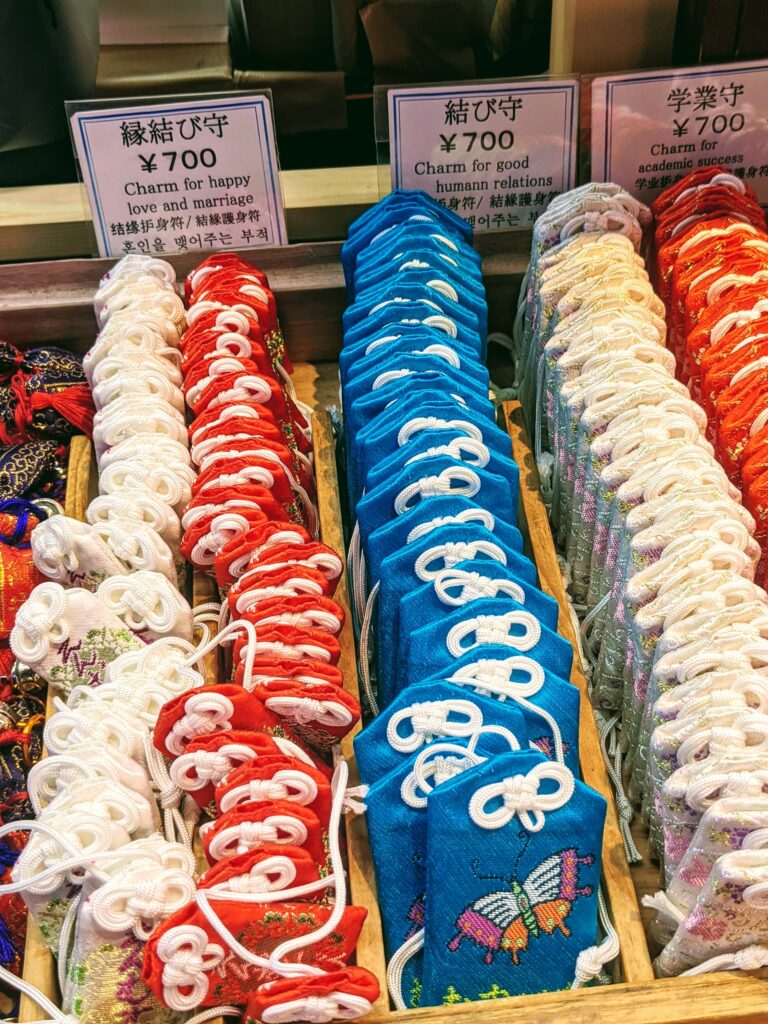
We have two Omamori charms in our house; both from the Todaiji Temple in Nara where we pet allllll the deer. Omamori charms are little prayers wrapped up in silk that are then sold at both Buddhist temples and Shinto shrines. There are thousands of shrines and temples dotted all over Japan so finding one is easy, although some temples make specialized charms that are quite rare. Common Omamori found at just about any large temple include those for traffic safety, success in school exams, success in business, longevity, help with chronic sickness, a prosperous marriage, a safe and easy pregnancy, warding off evil, etc etc. Hang them somewhere so that they are often with you. For instance, road safety Omamori charms are often hanging on rear view mirrors and key chains. We have a prosperous marriage Omamori hanging on a wedding picture in our hallway. You should never unwrap your Omamori as it’s thought that the prayer will escape. It’s also fine if your Omamori gets a bit banged up in the course of daily life; that just symbolizes that it’s working hard. Customarily they last one year and should be returned to the temple to be burned in a sacred fire, where you can buy a new one to replace it.
Tanuki: The Lucky Raccoon with balls
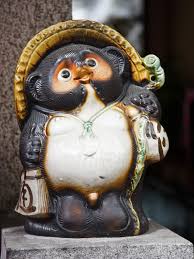
The Japanese really enjoy word play. If the name of one thing closely resembles the symbol for a positive word or phrase, that thing will automatically be lucky. In this instance, A Tanuki is a racoon-dog but it is close to “Taneki”, which means lucky. And so you have this strange looking raccoon luck symbol! Like the waving cat, the accessories and details tell you a lot about what kind of luck a Tanuki brings. A hat protects from calamities (and bad weather), the big eyes are for making good decisions with full understanding, a sake bottle can mean wisdom or virtue. Most notably, the balls. Big Balls = Big Money. So the best Tanuki has big eyes, is fat, wears a lot of accessories, and has huge balls. Here’s a few fun vintage (c. 1842) art pieces showing off some very functional raccoon balls in Japan. Yes, they are so big they are being used as fishing nets and sleighs.
Maneki Neko
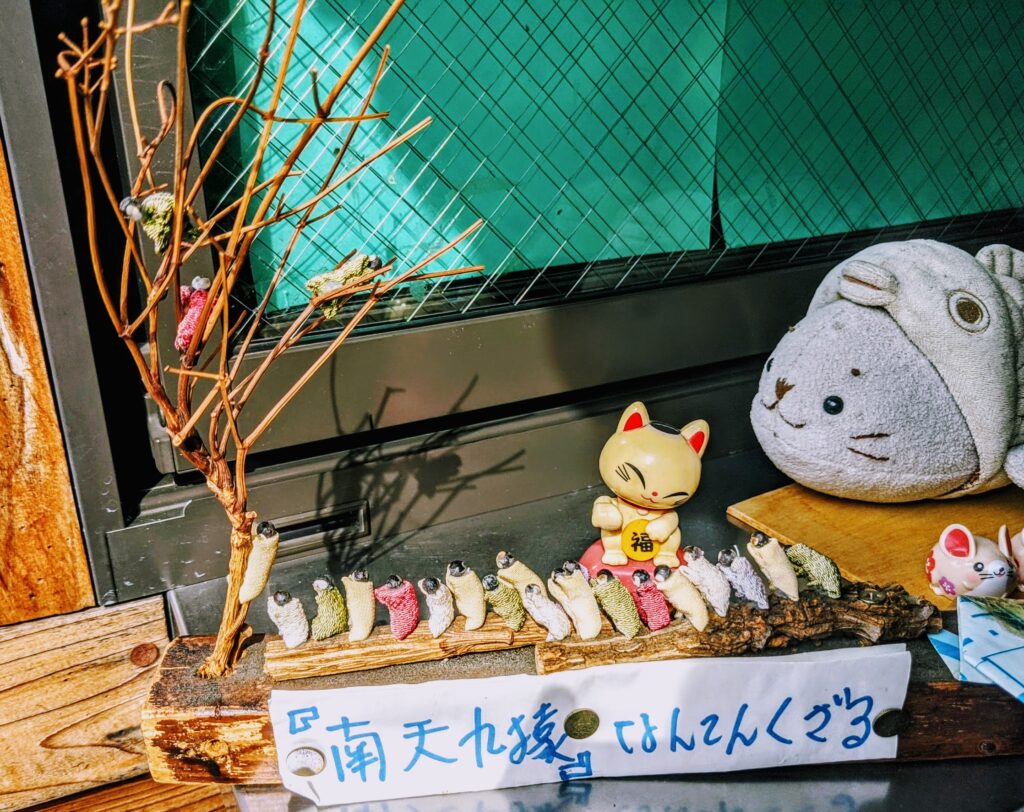
The waving cat! Who hasn’t seen a Maneki Neko? In the States they were in just about any Asian restaurant; you’ll see them once you start looking for them. In Japan you’ll find them at shrines, restaurants, grocery stores, pet stores, malls, and many other businesses. They may have a coin or money bag, symbolizing good luck in wealth, or be carrying a gem or marble, symbolizing wisdom. A drum represents attracting customers so your shop overflows with business, while a gourd or bottle represents a sake bottle and brings good luck and virtue. A raised left paw attracts customers, a raised right paw attracts money, and both paws raised invites protection. Kyoto is a bit special in that they have foxes in these poses instead of cats because of their sacred Fox Temple:
